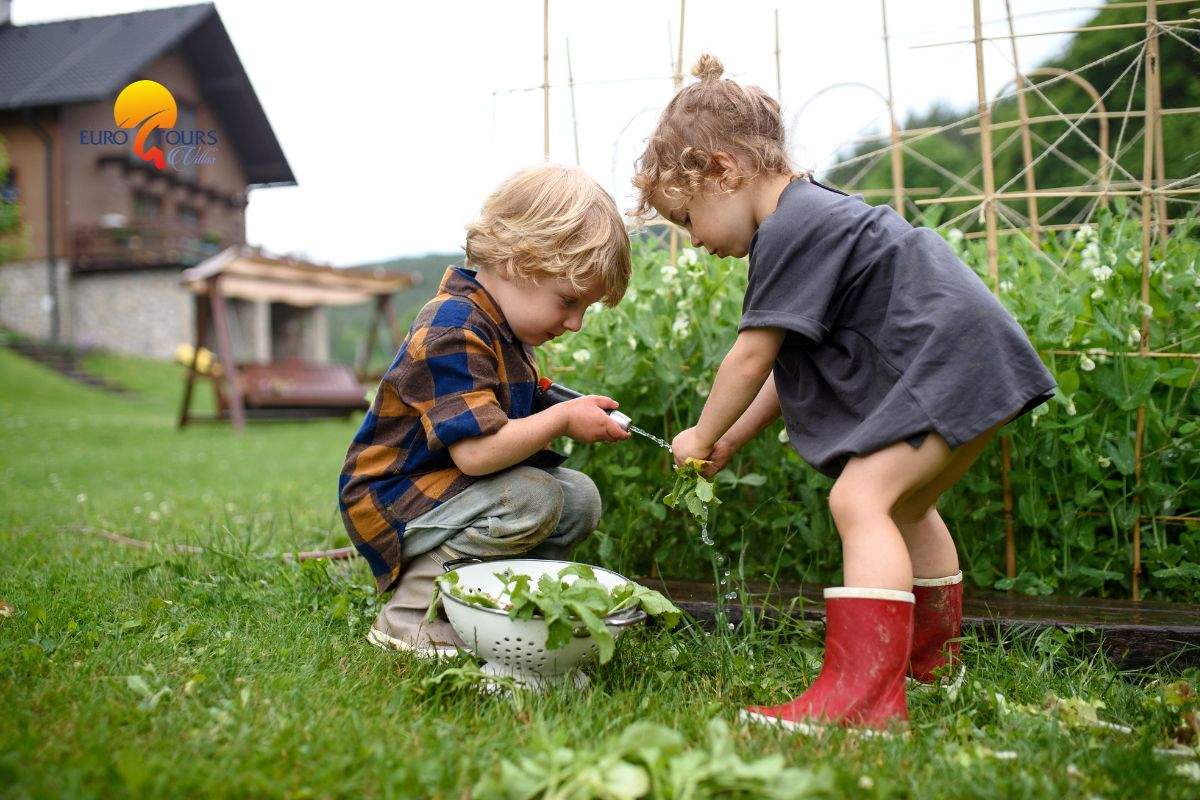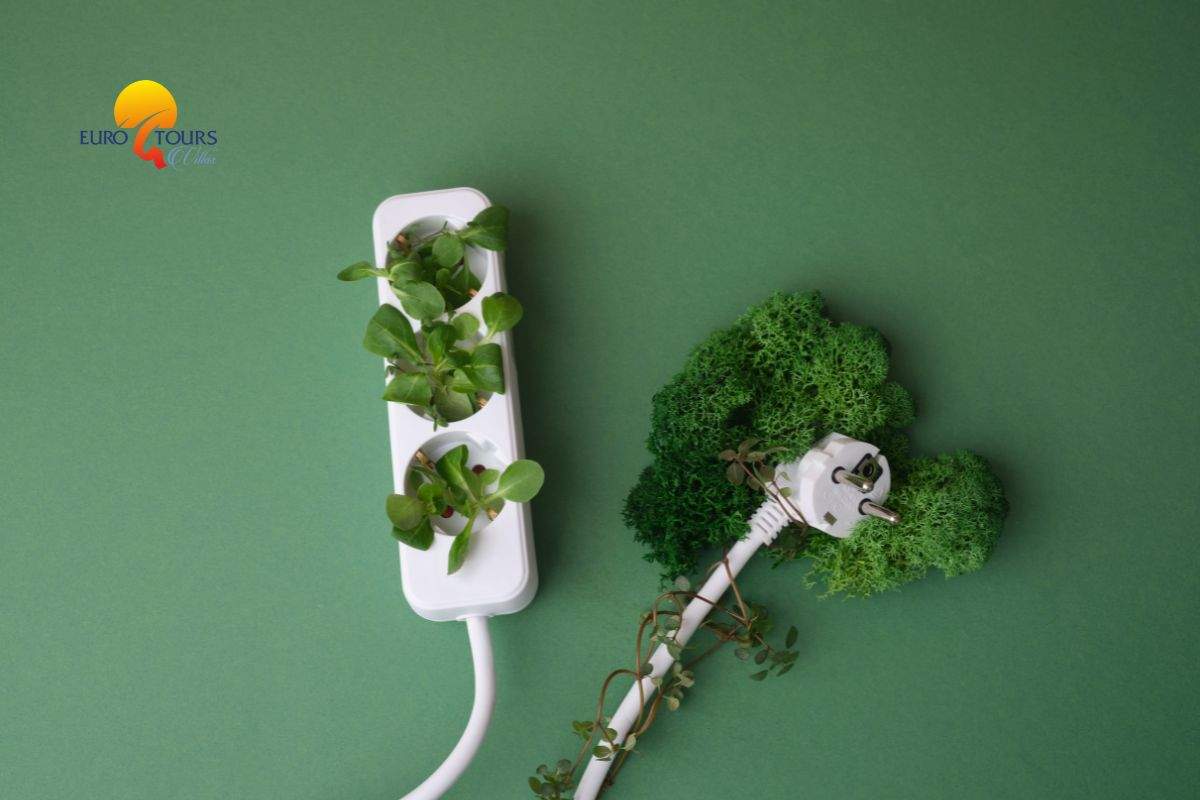Sustainable Tourism: How to Make Your Holiday Property Eco-Friendly
In recent years, sustainability has become a significant consideration for travelers when choosing accommodations. As travelers become more eco-conscious, they are increasingly seeking out properties that reflect their values—places that minimize their environmental impact and contribute positively to the local community.
This shift in consumer behavior presents an opportunity for property owners to make changes that not only benefit the environment but also attract a growing market of responsible tourists. If you're looking to make your property more eco-friendly, here are practical and effective ways to align your business with the sustainable tourism movement.

Energy Efficiency: A Vital Step Toward Sustainability
One of the most impactful changes you can make to your property is reducing energy consumption. Not only does this lower your carbon footprint, but it also reduces your utility costs over time.
Start with simple upgrades, like replacing old light bulbs with energy-efficient LED lights. These use far less electricity and last longer than traditional bulbs, which makes them a cost-effective, environmentally friendly upgrade. Additionally, maximizing natural light can help reduce the need for artificial lighting. Consider installing larger windows or using lighter shades for curtains to allow more daylight into the rooms.
Upgrading to energy-efficient appliances is another great step. Choose refrigerators, air conditioners, and washing machines with an energy-efficient rating to reduce your power consumption. Smart thermostats also play a key role, allowing you to monitor and control the temperature more efficiently, ensuring heating or cooling is used only when necessary.
If you’re ready to take a more significant step, installing solar panels is a great long-term investment. Solar energy helps reduce your dependence on traditional power sources, benefiting both the environment and your bottom line.

Water Conservation: A Crucial Aspect of Eco-Friendly Tourism
Water conservation is another essential part of sustainability in tourism. Guests are increasingly aware of how their water usage impacts the environment, and by implementing water-saving measures, you can reduce your property’s environmental footprint and operating costs.
-
Install low-flow faucets, showerheads, and toilets to reduce water consumption without compromising comfort.
-
Rainwater harvesting can be an effective way to collect water for irrigation, reducing your dependence on municipal supplies for outdoor needs.
-
Encourage guests to reuse towels and bedding and provide easy-to-follow instructions on turning off taps when not in use.
By making these changes, you ensure that your property is contributing to water preservation, which is especially important in areas where water resources may be limited.

Waste Reduction: Embrace a Zero-Waste Philosophy
Waste management is another crucial component of sustainability. As guests become more conscious of waste, they increasingly prefer accommodations that contribute to reducing landfill waste.
Set up clear recycling stations for guests in accessible areas and provide information about sorting materials properly. Additionally, composting organic waste in your garden is a great way to reduce trash and create nutrient-rich soil for landscaping.
Consider replacing single-use plastics with sustainable alternatives. For instance, use glass bottles instead of plastic, provide refillable toiletries, and encourage guests to bring their own reusable shopping bags. By reducing plastic waste, you help minimize pollution and set a positive example for guests to follow.
Supporting Local and Sustainable Products
Eco-conscious travelers often want to support the local economy and choose sustainably sourced products. By incorporating locally produced goods, you not only help the environment but also enhance your guests' experience.
-
Use eco-friendly, cruelty-free toiletries such as organic soaps, shampoos, and conditioners.
-
Offer locally sourced and organic food in your property if you provide meals or snacks. This reduces food miles and supports local farmers.
-
Invest in sustainable furnishings like bamboo, reclaimed wood, or upcycled furniture. This gives your property a unique charm while supporting responsible production.
Guests appreciate staying at properties that support local businesses and sustainable practices, and by offering such products, you can add value to their stay.

Certification and Recognition: Show Guests Your Commitment
Eco-conscious travelers actively seek accommodations with green certifications to ensure their stay aligns with their values. These certifications provide credibility to your sustainability efforts and help distinguish your property in a competitive market.
Several eco-certifications, such as Green Key, EarthCheck, and Green Globe, can validate your commitment to sustainability. Achieving these certifications shows guests that you are serious about minimizing your environmental impact, which can increase bookings from eco-minded travelers.
Don’t forget to showcase your certifications prominently on your website and booking platforms. Transparency about your green initiatives will help you attract more guests who prioritize eco-friendly choices when booking accommodations.

Educating Your Guests: Inspiring Eco-Friendly Practices
While it’s essential to implement sustainable practices, educating your guests about how they can contribute is equally important. Provide guests with a sustainability guide that includes information on how to reduce their environmental footprint during their stay.
-
Encourage guests to use public transportation, rent bicycles, or walk to nearby attractions to reduce their carbon footprint.
-
Offer transportation options such as bike rentals or local car-sharing services.
-
Provide information about local eco-friendly restaurants and shops that align with sustainable values.
By educating your guests, you foster a culture of sustainability that extends beyond your property and influences their travel habits.
Conclusion: The Growing Demand for Sustainable Travel
Not only does adopting sustainable practices benefit the environment, but it can also improve your property’s reputation, attract a loyal customer base, and lower operating costs over time. Whether you’re starting with small upgrades or planning more significant investments, making your property eco-friendly can lead to long-term success in the growing sustainable tourism market.









